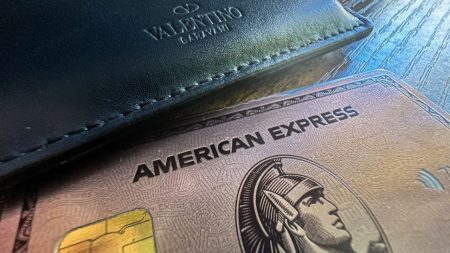Key takeaways
- With responsible use, credit cards can help you build your credit and earn valuable rewards. Plus, you can enjoy protection against unauthorized charges and other benefits.
- Keep in mind that credit card interest rates are high, and if you don’t pay on time and in full, you could accumulate debt and hurt your credit score.
- Make sure to choose the right card for you and practice good habits to enjoy your credit card’s advantages and avoid its downsides.
Using a credit card can be one of the best ways to improve your overall financial health by growing your credit score and earning rewards.
When you’re approved for a credit card, the card issuer extends a line of credit to you. At the end of each monthly billing cycle, you’ll need to pay down that balance, or else it begins to accrue interest.
High credit card interest rates — and how quickly they can result in mounting debt balances — are a downside of credit cards. But if you pay off your balance in full and on time, you can reap benefits like rewards and a strong credit score.
Here are some things to keep in mind as you’re deciding whether you should get a credit card:
Pros and cons of credit cards
When used responsibly, the best credit cards come with benefits and convenience — but there are risks, too. Check out these advantages and disadvantages of credit cards:
Pros
- Allow cardholders to build credit over time with responsible use
- Provide opportunities to earn rewards
- Can have travel benefits
- Provide added consumer protections
- Offer protection against theft and damage on purchases
- Can come with 0 percent intro APR offers as a way to repay debt or make a big purchase
Cons
- Tend to have high interest rates when compared to other lending products
- Charge possible fees, including some you can’t avoid
- Provide temptation to overspend and accrue credit card debt
- Can have costly deferred interest promotions
- Have the potential to hurt your credit score
Credit card pros
These credit card advantages can help you get extra value from your card:
Credit-building opportunities
Credit cards can be a tool to build credit over time. And your credit score may have a big impact on your financial life.
Having great credit can help you qualify for future loans, like auto loans and mortgages. A good credit score can also help you get more favorable terms, like lower interest rates, on money you borrow.
To build credit using a credit card, it’s best to pay at least the minimum amount by your monthly due date and keep a low credit utilization ratio. Card issuers regularly report your account activity to the three major credit bureaus, so you’ll want to build a consistent, positive history.
“Responsible use of a credit card can help build credit profiles,” says Kyle Enright, president of Achieve Lending, a personal loan and home equity line of credit lender. “That means keeping charges low…and paying every bill on time.”
Enright points out that, unlike credit cards, debit card activity isn’t factored into credit scores. So the best way to build your credit is to use credit.
Rewards
Having the right credit card in your wallet can help you earn cash back, points or miles on common purchases. When you open a rewards credit card, you may also get a welcome bonus after hitting a certain spending threshold.
Before choosing the card with the highest welcome bonus or rewards rate, however, you’ll want to start by looking at credit cards that aligns with how you spend. For example, frequent travelers might benefit from a travel credit card that offers points or miles toward future travel. Other shoppers might get more value from a cash back card with rewards on things like groceries, gas and entertainment.
Travel benefits
Some credit cards offer added travel benefits that could go a long way on your next trip. These include:
- Travel insurance
- No foreign transaction fees
- Lounge access
- Statement credits for programs like Global Entry and TSA PreCheck
- Savings with partner brands
“Credit cards can be very helpful for travel,” Enright says. “Rental car companies, airlines and accommodation businesses typically prefer credit cards, as it’s easier to charge damages to them than to debit cards. Plus, if they do take debit cards, they may place a hold on the associated checking account — which means you can’t access that amount until the hold is released.”
Fraud protection
Consumer credit card protections make everyday purchases with a credit card a safer option than with cash.
“If you’ve purchased an item with a credit card and need to dispute the transaction for some reason, you can contact the card issuer and report it,” Enright says. “While they investigate the transaction, you will not be responsible for the charge.”
Most credit cards come with zero-liability fraud protection on unauthorized charges, as long as you report the charges within 30 days. Even if your issuer doesn’t give you zero liability, the Fair Credit Billing Act limits your total liability for unauthorized charges to just $50.
What’s more, if unauthorized charges are made on your credit card account, you may be able to resolve the issue before your balance is due and actual money is lost. But if your debit card is stolen, it can take longer to resolve the problem since you’ll need to wait for the funds to be returned to your bank account.
Plus, “Credit cards can help you avoid carrying around a significant amount of cash,” Enright says. And if cash is stolen or lost, it’s probably gone for good.
Purchase protection
Purchase protection is another hidden perk you’ll find on most credit cards. If an item you bought with your card is stolen or damaged within a certain period — typically 90 to 120 days — you can receive a replacement or reimbursement.
Be aware that there’s typically an annual or lifetime limit on this bonus, along with a per-claim limit. Certain kinds of purchases, such as motorized vehicles, antiques and used items, may be excluded.
Potential interest break
Some credit cards also offer a 0 percent introductory APR, which allows cardholders to avoid interest charges on qualifying balance transfers, new purchases or both for a promotional period — typically 12 to 21 months. When used correctly, the best 0 percent APR cards could help you pay off high-interest debt or make a large purchase over time.
Enright advises paying off the balance in full before the intro period ends. After that, the interest rate will likely skyrocket.
You don’t want to end up deeper in debt when the intro offer ends. And if you don’t make minimum payments, the issuer might revoke your promo rate and hit you with a high penalty APR.
Credit card cons
While credit cards can add value to your spending, there are risks to using them. Here are a few disadvantages of a credit card:
High interest rates
Credit cards have notoriously high interest rates. Right now, the average credit card interest rate is just over 20 percent, though some cardholders carry APRs even higher.
Most credit cards have variable interest rates, meaning the rates change over time — usually based on changes with the government’s prime rate. If you carry a balance on your credit card, you’ll pay interest on that remaining money. And the interest will compound until the balance is paid off, which can get expensive quickly.
“Paying less than the balance means high interest charges,” Enright explains. “Beyond paying the actual interest charge, you’re losing the opportunity to do something productive with that money.”
Fees
Interest rates aren’t the only costs you can incur with a credit card. Card issuers may charge late fees, foreign transaction fees, balance transfer fees and more. Make sure to read your card’s terms and conditions to know what fees you may encounter and how to avoid them.
Many premium credit cards also charge an annual fee that you pay each year for the privilege of having the card. You can often offset the cost with the value you’ll earn in rewards and benefits, but make sure your budget allows you to do so before you apply. You can also consider a no annual fee credit card.
Risk of debt
With a high credit limit may come the temptation to overspend. But with such high interest rates, overspending can be an expensive mistake.
If you tend to overspend, create a budget that accounts for spending only what you have in the bank — and allows you to pay off your balance at the end of your billing cycle. Then start tracking your expenses throughout the month to help stay on track.
By spending only what you can afford to pay off in full each month, you can avoid the pitfalls of credit card debt.
Deferred interest
Some co-branded cards and store cards — which grant rewards when you shop with a particular store or brand — promise financing without interest charges for a promotional period. But don’t get these offers confused with 0 percent APR credit card deals. The issuer will keep track of interest on your purchases from the moment you receive the card. If you don’t pay your entire balance by the promotional period’s end — even if you have just $1 left to pay off — you’re on the hook for all of that interest.
Spot deferred interest promotions by looking for language like “no interest if paid in full” or promises of no interest for a certain number of months. Missing these cues or failing to pay your full balance before the promo period ends could be costly.
Risk of credit score damage
While there are plenty of ways to build credit with a credit card — creating a positive payment history, keeping a low credit utilization and adding to your credit mix, for example — you can also hurt your credit score with bad credit habits.
For example, going over an ideal credit utilization could have a negative effect on your score. Experts recommend using under 30 percent of your available credit. If you have a credit limit of $5,000, that means keeping your balance below $1,500.
Applying for multiple credit cards at once can also temporarily bring down your score with hard credit inquiries. Multiple recent credit applications can also be a red flag to lenders.
Of course, making late payments or not paying at least the minimum amount due will also hurt your credit score. “If you carry high balances, and if you do not make consistent on-time payments, your score will suffer,” Enright cautions.
The bottom line
Credit cards can be a great financial tool when used carefully. Not only can you build a positive credit history, but the right card lets you earn rewards on your everyday spending and get value from added benefits. Just remember that there can be disadvantages to using a credit card, too. You might find that it’s easier to fall into debt with a credit card, which can get costly and may end up hurting your credit.
If you’re ready for a new card and feel that you can manage all of the pros and cons that come with it, you can use Bankrate’s CardMatch™ tool to get pre-qualified for multiple cards, then find the one that’s right for you.
Read the full article here
















